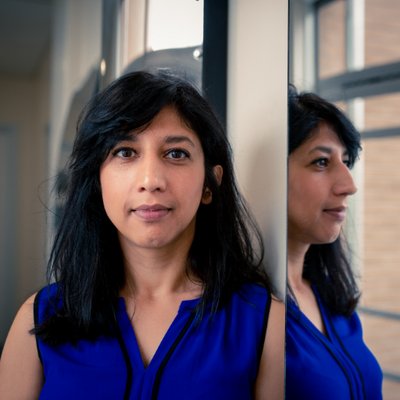L@L Distinguished Speaker 2020

- Date
- Wednesday 29 April 2020, from 4 pm
- Location
- Speakman Lecture Theatre (Clothworkers Central Building G.89)
THIS EVENT WILL BE RESCHEDULED AS SOON AS POSSIBLE AFTER THE PERIOD OF CONFINEMENT.
Professor Asifa Majid has accepted our invitation to be the L@L Distinguished Speaker for 2019-2020.
Prof. Majid is an acclaimed specialist in Language, Communication and Cultural Cognition. She was appointed Inspirational Research Leader at the University of York in 2018. She is currently leading a large research project on "Language as key to perceptual diversity: An interdisciplinary approach to the senses" and is Chair of the Cognitive Science Society.
"Humans are one species and yet we speak 7000 different, mutually unintelligible languages. Each language provides a unique solution to how humans coordinate their social and physical worlds. Studying this diversity helps us see beyond our own worldview to the potential the human mind has in diverse cultures and places."
The title of her presentation is: Cross-cultural explorations of language and cognition
Abstract: Cross-linguistic studies show substantial differences in how languages package meaning into words and grammar. English makes a distinction between ‘hand’ and ‘arm’, for example, but it is estimated that a third of the world’s languages collapse this distinction, and refer to both with a single term. English has a single verb ‘to cut’ that can be used regardless of whether the action involves a knife or scissors; in Dutch, however, you must specify whether you ‘snijden’ (cut with a knife) or ‘knippen’ (cut with scissors). Most recently, a large-scale study of 20 diverse cultures has shown that even simple sensory experiences of colours, smells, and tactile textures are expressed differently across languages. This linguistic variation raises the question of whether the underlying cognition of people is also variable across cultures or whether diverse languages interface with a universal bedrock of cognition instead. Recent data suggests the answer may vary across domains, such that some aspects of cognition are more malleable to language effects than others.
The presentation will be followed by a round-table discussion with Diane Nelson (Linguistics), Dogus Oksuz (Education), Elisabetta Adami (Multimodality), Tom Jackson (Media and Communication), and Heather Logue (Philosophy).
There will a drinks reception afterwards. All welcome!
The event is free, but you will need to book your place on Eventbrite.
